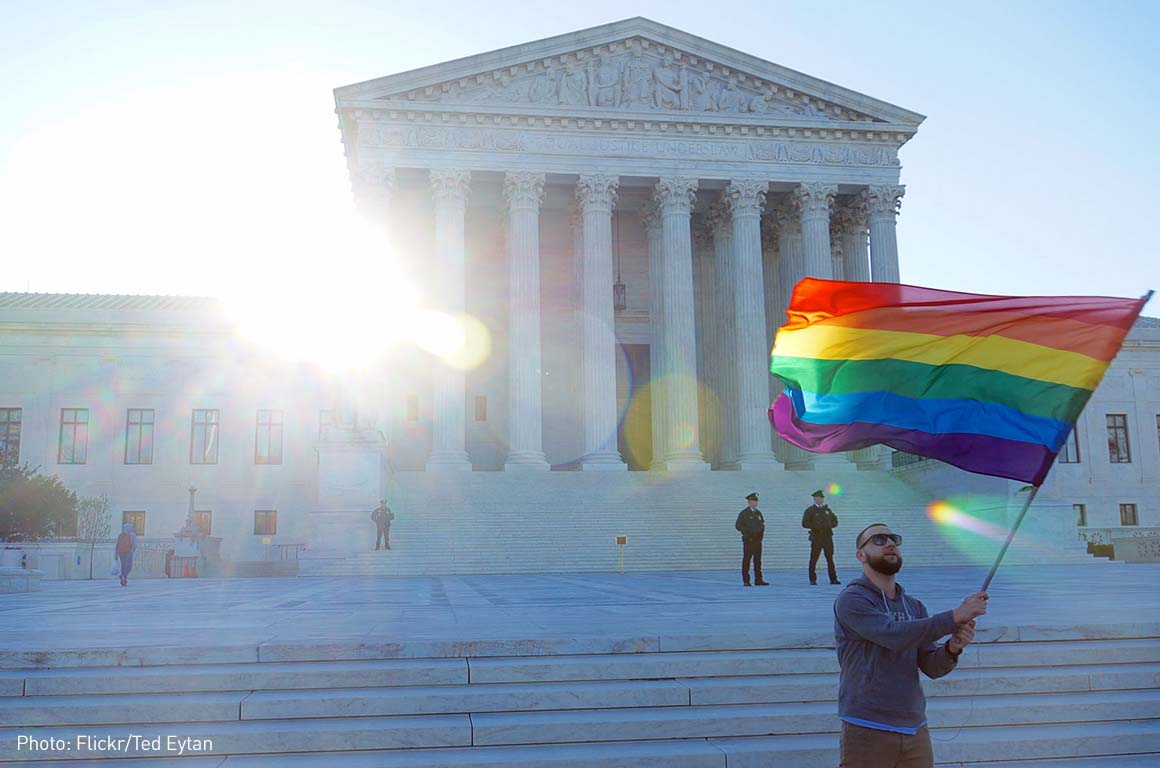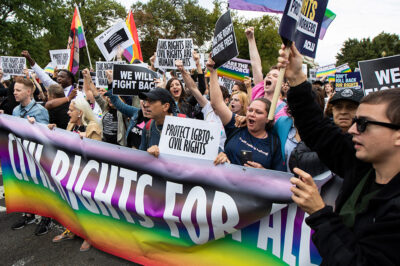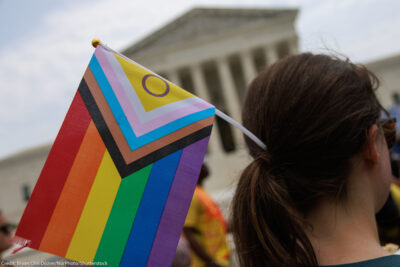
303 Creative, Inc. v. Elenis
What's at Stake
This case concerns whether applying a public-accommodation law to compel a business that chooses to serve the public to provide wedding website design services without discriminating against a same-sex couple violates the free speech clause of the First Amendment.
Summary
The American Civil Liberties Union and the ACLU of Colorado filed an amicus brief urging the Supreme Court to reject a First Amendment challenge to a Colorado civil rights law requiring businesses open to the public to treat customers equally. In 303 Creative, Inc. v. Elenis, the Court is asked whether an artist who has chosen to open a business to the public at large can constitutionally be prohibited from discriminating against customers on the basis of their sexual orientation. The case is a replay of a dispute involving Masterpiece Cakeshop from 2018, in which the ACLU represented a same-sex couple refused service by a bakery.
The Colorado Anti-Discrimination Act (CADA) applies only to businesses that choose to serve the public, and requires that they not discriminate in doing so. 303 Creative, a website design company, says it has a First Amendment right not to comply with the law because its service is “expressive,” “artistic,” and “customized,” and that it cannot be compelled to provide such services to a wedding to which it is ideologically opposed.
The ACLU contends that applying the statute to 303 Creative to require it to provide the same design services to all does not violate the First Amendment. Colorado’s anti-discrimination law does not regulate artists as such, but rather businesses that choose to sell to the public. The law does not treat “expressive” businesses any differently from any other businesses. It is therefore a content-neutral regulation directed at commercial sales conduct and satisfies intermediate scrutiny. Under Colorado’s law, artists are free to choose whether to sell their products or services to the public, and businesses that do serve the public are entirely free to choose what goods or services they provide. The law merely requires businesses open to the public not to deny service to some based on their identity.
Granting businesses that choose to sell to the public a free speech right to discriminate if their product is expressive would either swallow the rule against discrimination or require judges to make impossible assessments about whether a good or service is sufficiently expressive to give rise to a right to discriminate.
The Supreme Court held, 6-3, that a business offering customized expressive services has the right to violate state laws prohibiting such businesses from discrimination in sales. The Court ruled that in this instance, Colorado applied its public accommodations law to compel a website designer to provide a service to gay couples that she would not provide to anyone, thereby impermissibly compelling her “pure speech.”
Legal Documents
-
08/19/2022
ACLU Amicus Brief in Support of Respondents
Date Filed: 08/19/2022
Court: Supreme Court
Download DocumentPress Releases
ACLU Responds to Supreme Court Ruling in 303 Creative, Inc. v. Elenis
ACLU Files Amicus Brief Urging Supreme Court to Reject Attempt to Weaken Civil Rights Law

